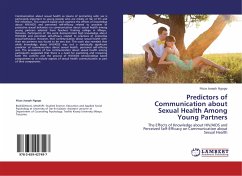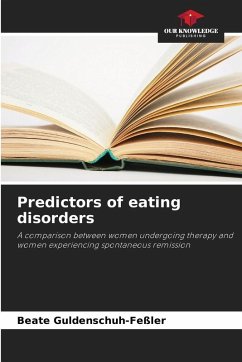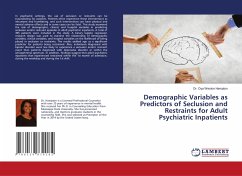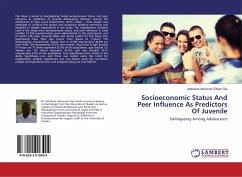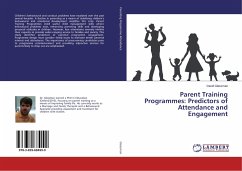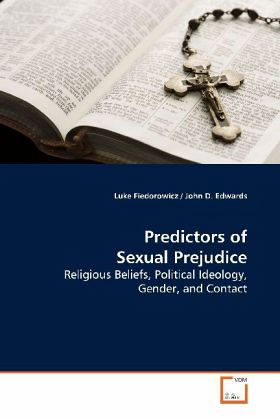
Predictors of Sexual Prejudice
Religious Beliefs, Political Ideology, Gender, and Contact
Versandkostenfrei!
Versandfertig in 6-10 Tagen
32,99 €
inkl. MwSt.

PAYBACK Punkte
16 °P sammeln!
In recent years, the issues of homosexuality and gayrights have sparked a lot of controversy. Some peoplesupport gay rights and have positive attitudes towardgay men and lesbians whereas others condemnhomosexuality and oppose giving gay people the rightsthat heterosexuals take for granted. Many opponentscite their religious or political beliefs asarguments for their attitudes. The purpose of thisstudy was to examine the relationship of componentsof religiosity, political ideology, gender andcontact with attitudes toward gay men and lesbians.In this study, we looked to build on previousresearch...
In recent years, the issues of homosexuality and gay
rights have sparked a lot of controversy. Some people
support gay rights and have positive attitudes toward
gay men and lesbians whereas others condemn
homosexuality and oppose giving gay people the rights
that heterosexuals take for granted. Many opponents
cite their religious or political beliefs as
arguments for their attitudes. The purpose of this
study was to examine the relationship of components
of religiosity, political ideology, gender and
contact with attitudes toward gay men and lesbians.
In this study, we looked to build on previous
research and examine more detailed and substantive
aspects of political and religious beliefs and
contact with gay men and lesbians. The results show
that not all components of religiosity and political
ideology are good predictors of attitudes toward gay
males and females. Contact with homosexuals is a good
predictor only for gay men targets but not for
lesbians. These findings also demonstrate that simple
categorical measures or measures of overall
religiosity and political ideology may not be
adequate to fully capture these two concepts.
rights have sparked a lot of controversy. Some people
support gay rights and have positive attitudes toward
gay men and lesbians whereas others condemn
homosexuality and oppose giving gay people the rights
that heterosexuals take for granted. Many opponents
cite their religious or political beliefs as
arguments for their attitudes. The purpose of this
study was to examine the relationship of components
of religiosity, political ideology, gender and
contact with attitudes toward gay men and lesbians.
In this study, we looked to build on previous
research and examine more detailed and substantive
aspects of political and religious beliefs and
contact with gay men and lesbians. The results show
that not all components of religiosity and political
ideology are good predictors of attitudes toward gay
males and females. Contact with homosexuals is a good
predictor only for gay men targets but not for
lesbians. These findings also demonstrate that simple
categorical measures or measures of overall
religiosity and political ideology may not be
adequate to fully capture these two concepts.





